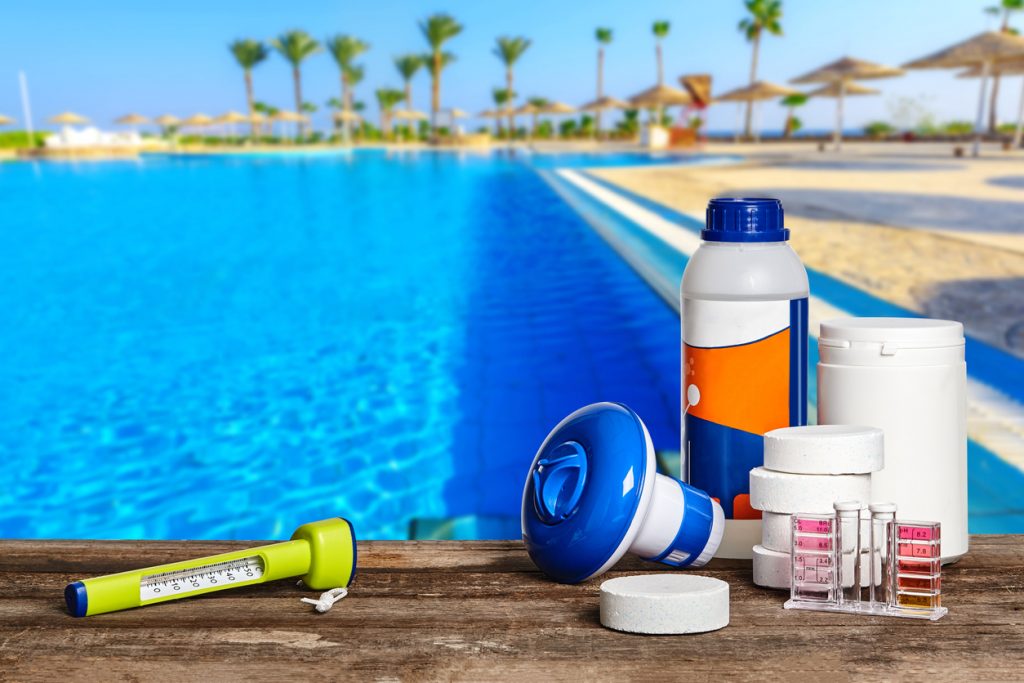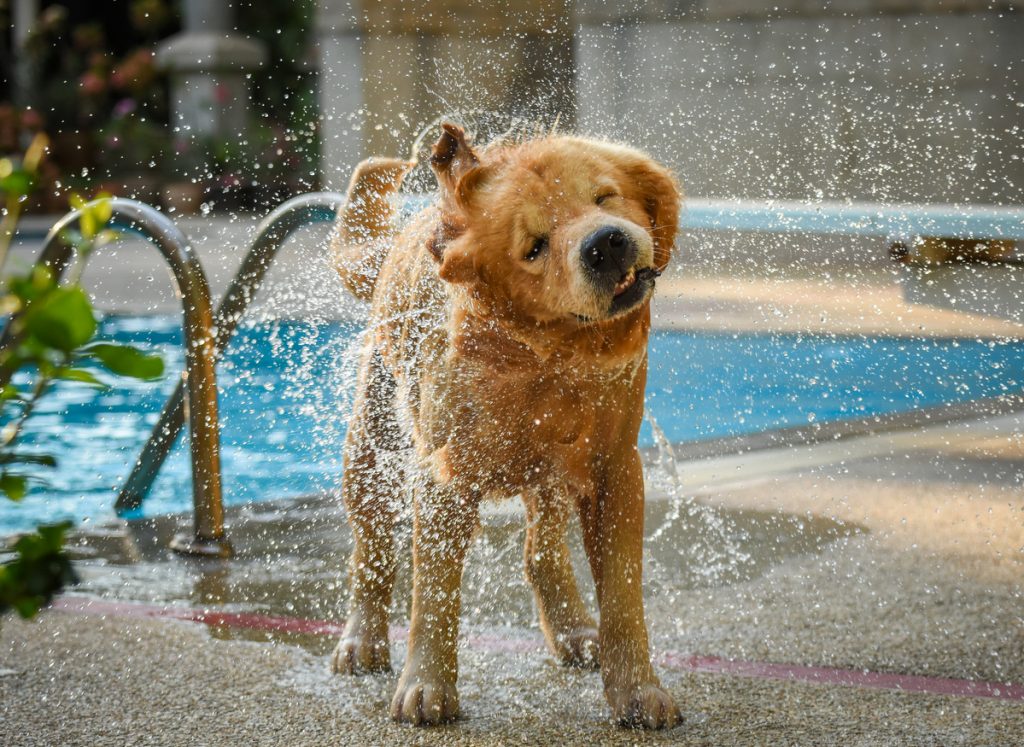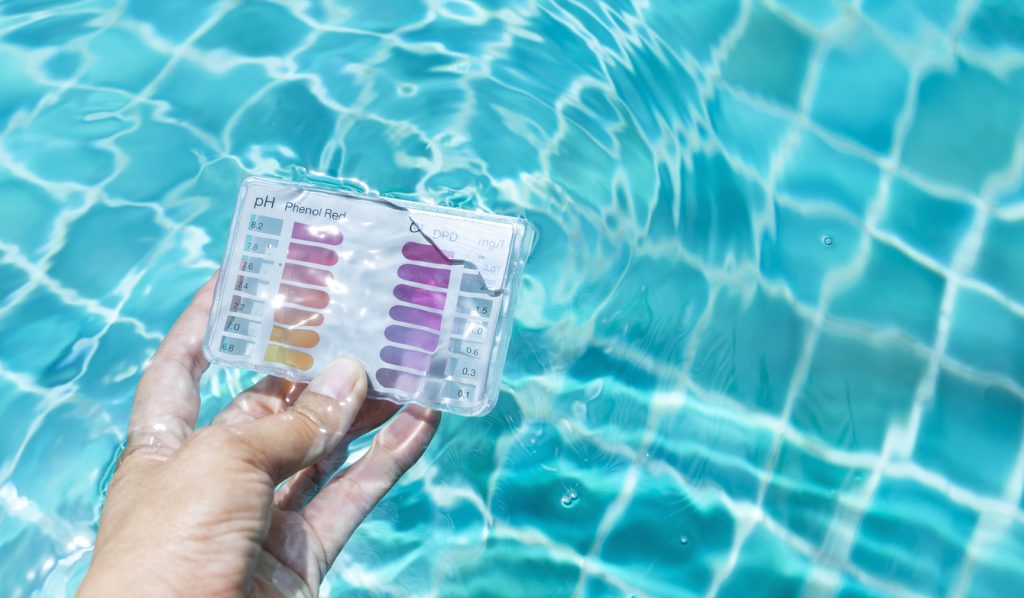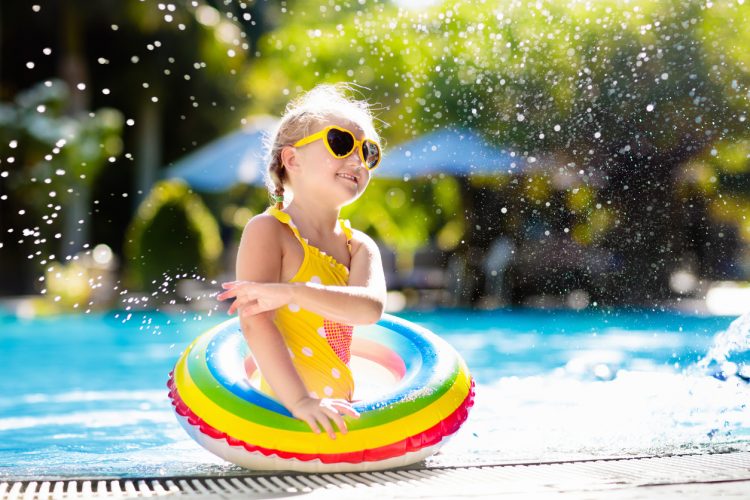Poolmagedon — it’s not the summer’s latest blockbuster. In fact, it might be the biggest belly flop of 2021. What is it? Poolmagedon, as some are calling it, refers to the worldwide shortage of trichlor.
Trichlor, a type of chlorine, is often used by pool owners to sanitize their water and keep it safe for swimming, splashing, and general summer fun. But with the shortage of trichlor, will summer fun be canceled?
If you look at your local pool supply store, you might be afraid the answer is yes. Flyers are posted, warning shoppers about the chlorine shortage and, if there is chlorine, it is available in limited quantities.
In addition, pool owners are noticing that the price of chlorine is not what they paid last year. It’s more. A lot more.
While the pool chlorine shortage might be adding stress to what should be a relaxing summer, here’s why it happened and what you can do.

Why is There a Pool Chlorine Shortage?
There is not just one reason there is a pool chlorine shortage — there are two.
Supply and demand.
The chlorine supply chain took a hit when Hurricane Laura struck the Gulf Coast in August 2020. After the storm hit, a fire started in the BioLab chemical plant in Louisiana that manufactured trichlor tablets. The building was destroyed, and rebuilding will take at least a year.
The fire was a hit to the already stressed supply chain. Amid the pandemic, the demand for pool chlorine was up. More people were incorporating a pool into their backyard and those who had pools were using them more.
The resulting pool chlorine shortage was something industry veterans had never seen. The cost was increasing, and it was harder for pool supply stores to get chlorine in stock. Those who could stock chlorine were stockpiling it.

What Can Pool Owners Do?
But what happens if your local pool store was not among the ones with a chlorine stockpile?
Use Less Chlorine
The most obvious solution is to use less chlorine. According to Bloomberg, there are 5.2 million homes that have in-ground pools in the U.S. Nearly 70 percent of those pools use chlorine as a sanitizer.
Following basic pool rules can minimize how hard your sanitizer has to work.
Tips for Reducing Chlorine Usage
- Rinse off before hopping in the pool
- Skim out debris and vacuum regularly
- Do not allow street clothes in the pool
- Rinse swim suits instead of using laundry soap
- Don’t let pets in your pool – one dog alone in your pool equals 50 people.
- Cover your pool when not using it
- Properly maintain your pool filter
Why do these tips work? It limits the amount of contaminants getting into the water and prevents the growth of algae and other bacteria.
Another option is a floater. Manufactured by King Technology, the FROG® can help reduce the amount of chlorine needed to keep your pool clean. The product floats in your skimmer basket, working with your chlorine to kill bacteria.
The FROG also conditions the water and buffers for pH.
Liquid Chlorine
Pool owners typically use chlorine tablets to sanitize their water. But you don’t have to use the tabs. Bio-Lab Inc., one of North America’s major pool and spa chemical manufacturers, suggests liquid chlorine as an alternative.
It’s important to keep in mind, though, that it works differently than chlorinating tablets.
“You’ll also need to be mindful that the pH will increase, requiring addition of other products to offset the pH drift from pool chlorinating liquid. Be sure to follow label directions for dosage and handling instructions,: says David Rouse, vice president of research and development.
Pool owners will also need to add a stabilizer to prevent liquid chlorine from quickly degrading in the sunlight. Otherwise, the water will require additional chlorinating liquid.
If you want to try a chlorinating liquid, be sure to use a product intended for pool care. Household bleach is not a substitute! It is available at many retailers that offer other pool care supplies.

Optional Equipment
When faced with the chlorine shortage, it might be tempting to make the switch from a chlorine pool to a salt water pool. However, the switch might be more than you want to take on for the summer.
However, there are UV lights and ozone generators that can work side by side with your pool’s filtrations system. These are secondary systems and do not replace your need for chlorine. The chlorine level of your pool should be between 2 and 5 ppm.
The combination of UV and ozone will dramatically reduce the amount of chlorine your pool will require for clean water. A UV system does not filter out bacteria, algae, and other organics. Rather, it makes them inactive so they cannot grow in your pool.
An ozone system prevents chloramines from forming, and it will kill organics such as germs, algae, and viruses.
A UV light and ozone system is considered to be more eco-friendly, and pool owners report that it reduces irritation, discolored hair, and damage to swim suits.
Pool owners can choose to add UV and ozone individually, or there are systems that combine the two. Shoppers should talk to their local pool supply store about an Advanced Oxidation Process system.
Looking Forward
These solutions to the pool chlorine shortage might feel like a quick fix. And they are. It’s important to remember that the supply is expected to come up and demand should even out.
More permanent options —like converting to a salt water system — can be expensive. The cost can be $2,000 or more, and it’s not a one-time fee. A chlorine generator will have to be replaced and has its own challenges.
For help on navigating the shortage, you can visit a specialty pool retailer for advice.

